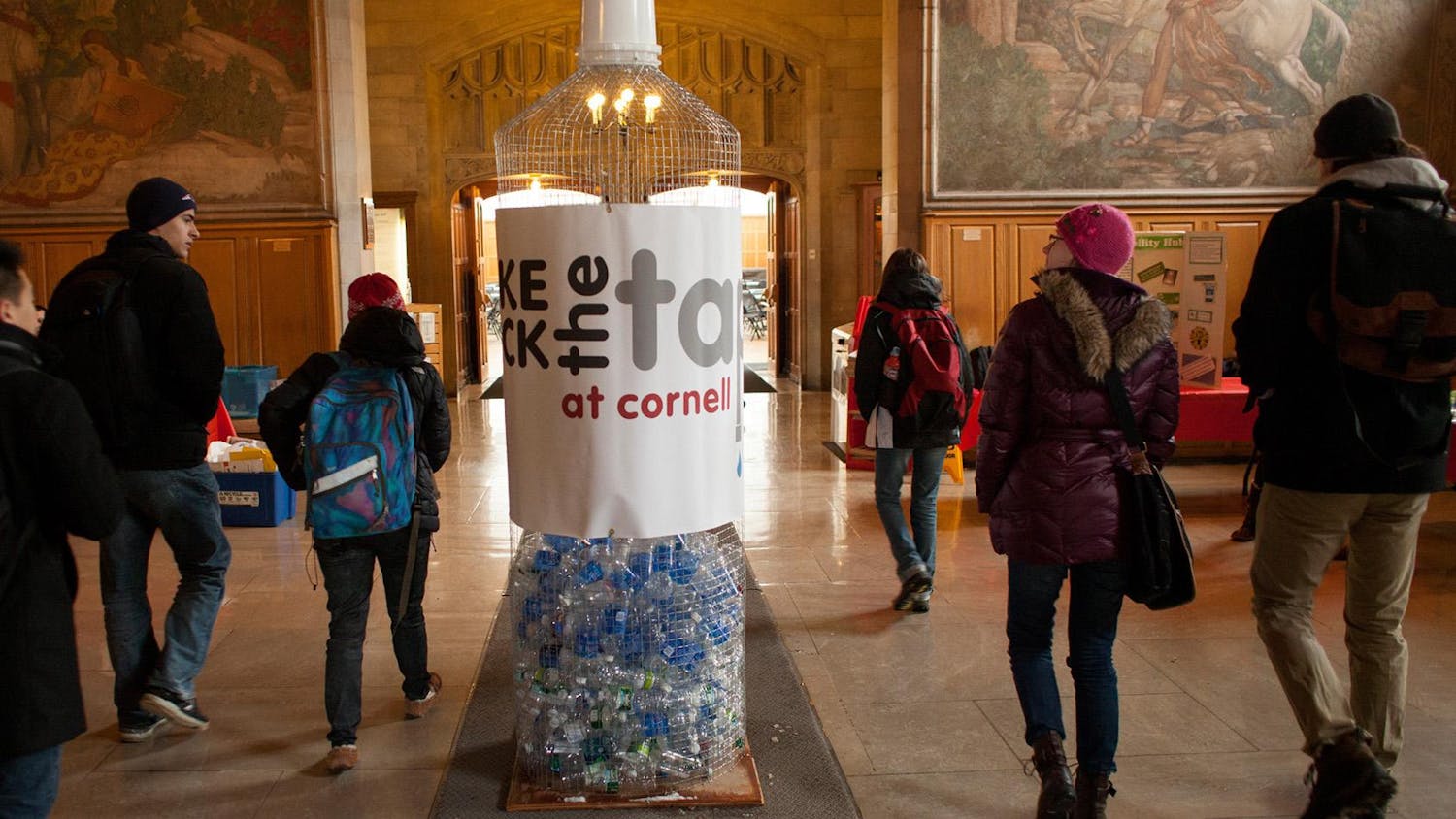When you think of sports rivalries, what comes to mind? Michigan-Ohio State? Sure. Celtics-Lakers? An oldie, but a goodie. Notre Dame-USC? Of course. Giants-Dodgers? One for the ages. Jets-Dolphins? Yup. Red Sox-Yankees? It doesn't get any better than that.
Do you think about Harvard-Yale? That one's steeped in tradition, probably the gold standard of college rivalries. What about Cornell-Colgate? No? Well, maybe you should.
There are several components that contribute to a great rivalry. A consistent series of meetings between the participants is obviously necessary. Similarly, a history of mutual excellence helps. The most important aspect, though, is a buzz surrounding the matchup, one that is palpable among both rivals. To put it simply, it takes two.
Cornell and Colgate are longtime opponents in men's basketball, women's basketball, football, men's lacrosse, women's lacrosse, men's soccer, women's soccer, swimming and diving, and, of course, men's and women's ice hockey. The schools are close in proximity, and occupy prominent roles in two rival conferences -- the Ivy League and the Patriot League. Additionally, both have the dubious distinction of sharing a very important intangible. As much as we hate to admit it, both universities tend to have a bit of an inferiority complex in relation to their peer institutions.
Tonight, the two schools will play in the first of two games that not only are crucial to the ECAC Hockey League standings, but mark the continuation of series that began in 1920. Cornell does have older opponents in men's hockey -- Army, Dartmouth, Harvard, Princeton, Rensselaer, and Yale among them -- but the Red has played no team as many times as the Raiders.
So, already the first two criteria have been met. The folks in Hamilton are doing their part to make that key third component a reality. They look forward to this weekend all year, and nothing makes Colgate's fan base more excited than the chance to shut down its more renowned travel partner. In recent years, Cornell fans have matched that fervor. But only because the Raiders have sent the Red to a few too many embarrassing defeats in the not-so-distant past.
Instead, Cornell fans prefer to focus their energy on teams such as Harvard. While there are plenty of great traditions that surround that series and plenty of fantastic games that have come out of it, Cornell and Harvard could never possibly share the rivalry that Cornell and Colgate have the potential for. The simple reason is this: Harvard has Yale. Every year, in every sport, Harvard circles Yale on its calendar, and vice versa.
Cornell--Harvard in lacrosse just doesn't have nearly the juice as that matchup does in hockey. Same for basketball, same for soccer, same for football. Cornell lacrosse players focus on beating Princeton and Syracuse -- very rare is the Ivy League title that doesn't go through Princeton or Cornell. In basketball, Cornell and Columbia go together in the minds of many; the New York State teams are travel partners and always seem to produce highly entertaining basketball.
The weekend before Thanksgiving every year, Cornell battles Penn in football for the Trustee's Cup. The Quakers also represent the Red's toughest competition in wrestling (this year not withstanding). The last 19 Ivy League championships have been determined by the Penn-Cornell match.
Very quietly, Colgate has a pretty lengthy history with Cornell in just about every sport. In 2003, the national runner--up Colgate football team faced possibly its toughest challenge of the regular season against 1-9 Cornell, a 27-24 victory in Ithaca.
No non-Ivy opponent has played Cornell nearly as often as Colgate in men's basketball, with the series fairly evenly matched.
Though Colgate has been off the men's lacrosse team's schedule for the last couple of years, this series tended to produce very competitive games as well. Sure, Cornell and Colgate play each other frequently because these games are local and easy to schedule. But neither school plays Syracuse, which is another local, nearly as often. Cornell plays games against Binghamton -- situated even closer to Ithaca than Hamilton or Colgate -- very rarely.
The history is there, the competitiveness is there, and all signs point towards a beautiful rivalry. So what is Cornell's biggest rival? Why not Colgate?
Owen Bochner is the Sun Sports Editor. In The O-Zone will appear every other Friday this semester.
Archived article by wen Bochner










